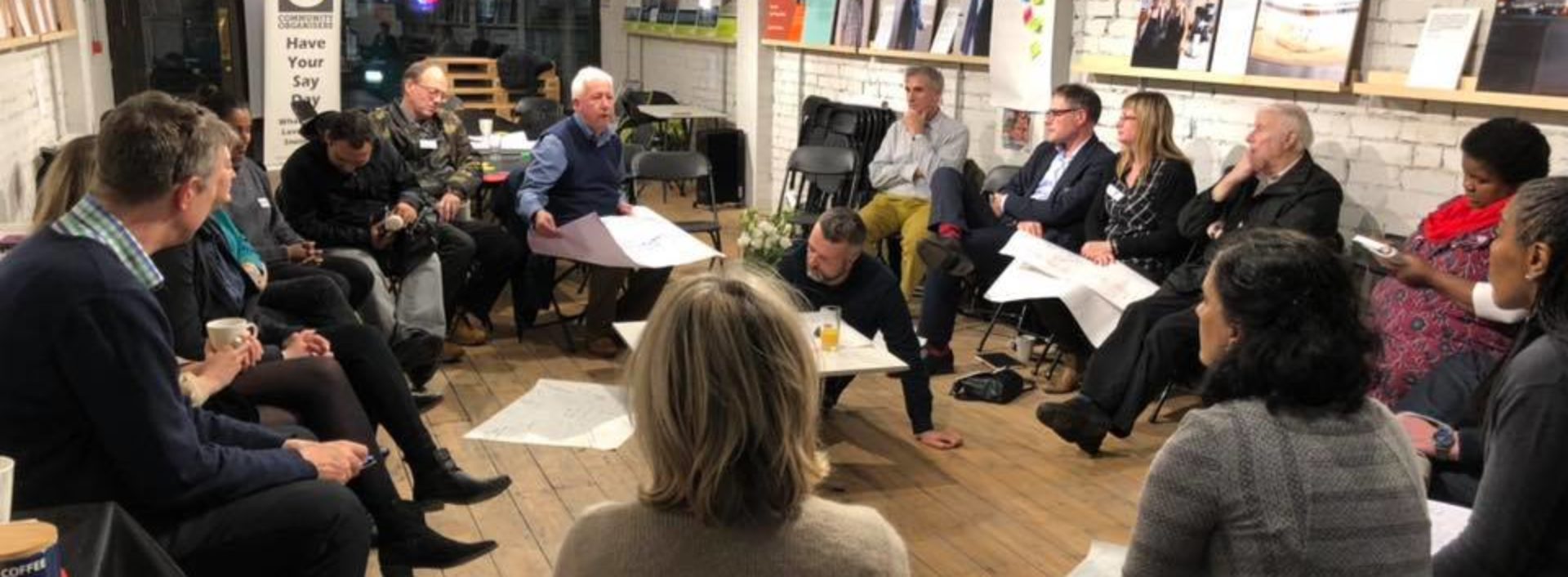Laura’s team at Nottingham City Council are working on a strategy that covers the whole of the planning system for Nottingham: the ‘Design Quality Framework’. This includes guidance on how to design housing, streets, and public spaces but also gives guidance on how to engage people during the planning process.
For the housing section, they brought in community organisers from Sneinton Alchemy to listen to the local community around the questions: ‘what makes a good home?’ and ‘what makes a good neighbourhood?’
One of the reasons for using community organisers in this process is the large networks they have access to, through years of relationship building.
“They are very well connected because they’ve been working on the ground, contacting people and creating these groups, helping people to organise themselves” explained Laura. “Now they have a huge network so you can reach out really quickly to lots of people that will be keen to contribute. That was a massive bonus.”
Sneinton Alchemy also cross-pollinate their networks with other local networks, making mass outreach more effective and representative. Across the listening events, they engaged with over 300 residents, including people who do not normally engage in the planning process.
As well as the deep-rooted networks of Nottingham’s community organisers, the method of listening used in community organising was particularly appealing to Laura, as she explained: “We went to participants very openly. We didn’t have a questionnaire or anything like that, we just let people work out by themselves what makes a good neighbourhood, and the answer came very much from their own initiative; they also worked out what was their priority for a good home.”
Laura explained that it was her own experience of training and volunteering with Sneinton Alchemy that motivated her to apply a community organising approach to this process:
“The major reason I had to involve community organisers was the knowledge that they ensure that the process is so representative and so open that you truly can hear everybody. I knew that was the case because I experienced that myself.”
Laura says that her community organising training is “going straight into the Design Quality Framework” – this will form part of Nottingham’s Local Plan, which is policy.
At the same time as the contribution to Design Quality Framework, Nottingham’s Local Plan was undergoing examination, which involved the possibility of the city adopting the ‘Nationally Described Space Standards’ to ensure a certain standard of housing in terms of size and accessibility.
Evidence submitted to the Local Plan examiner for this decision to be made included house builders’ claim that adopting the standards was financially complicated in Nottingham, but their evidence was insufficient against the voice of the people in Nottingham and the local socioeconomic statistics. The examiner stated that the strongest piece of evidence was the community consultation that was done through community organising.
Nottingham could finally adopt the ‘Nationally Described Space Standards’ based on the fact that there was sufficient evidence of public support.
“These standards are not easy to adopt, not many cities have them” Laura explained.
This policy change will have a huge impact on the people of Nottingham, as it will drive up the quality of new homes. What’s more, the process indicates a shift in the way planning policy is being achieved now and how it will happen in the future.
“Placemaking aims to shift power but if engagement is not truly achieved, the ethos won’t work,” explains Laura. “You could always do lots of consultation with hundreds of people, but is that really representative? and is it open to everybody? The power that community organising has is that you don’t have to force answers, it’s open and it’s equal – everyone is given an opportunity no matter what their skillsets are or what their background is – so I think that’s where the true shift in power should be.”



